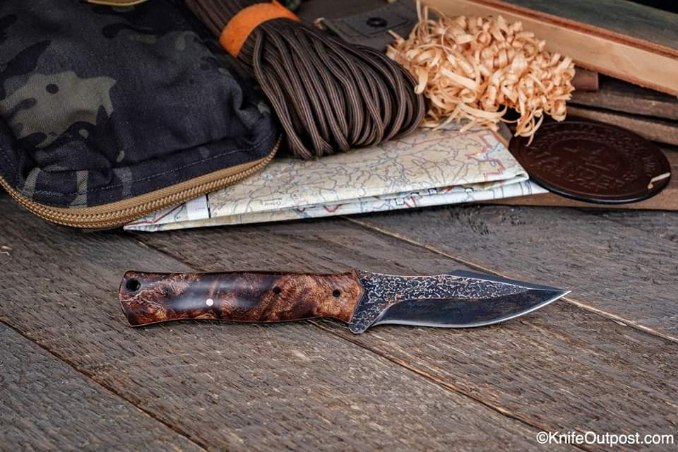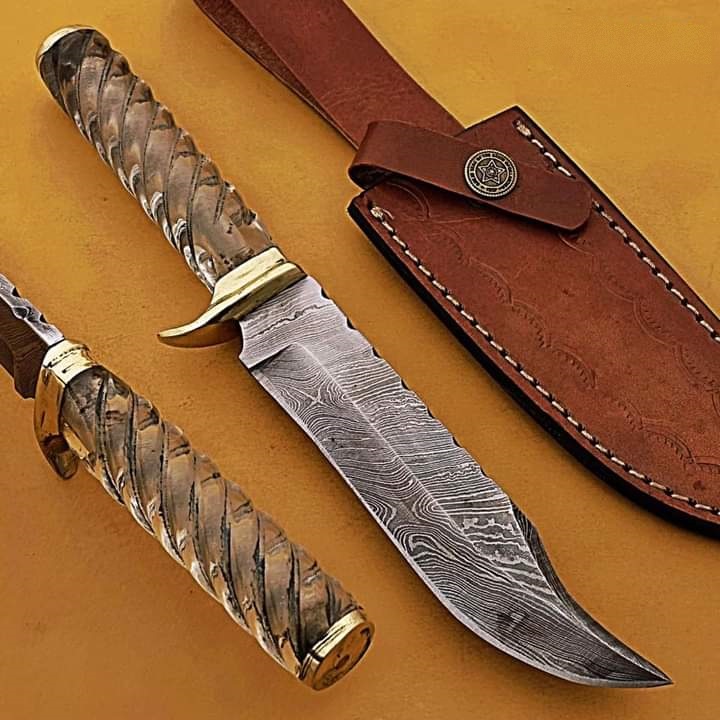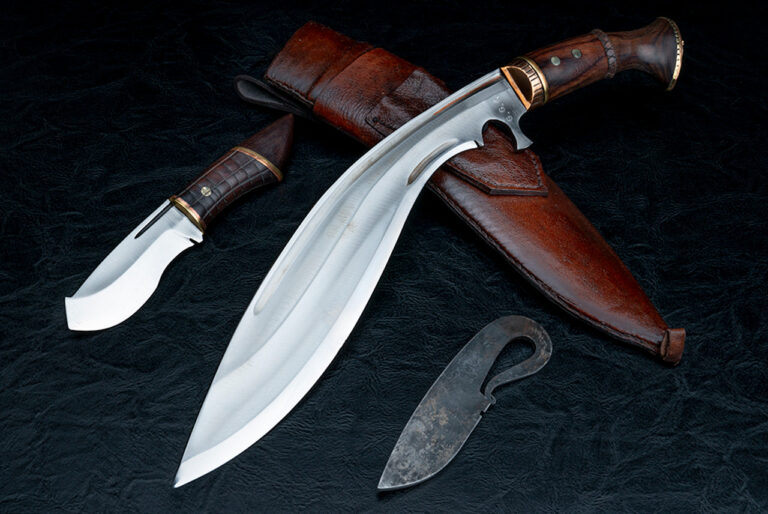- Layered Steel Construction: The unique pattern of Damascus knives comes from the layering of different types of steel. This process can result in a blade that combines the best qualities of both hard and soft steel.
- Edge Retention: Because of the combination of steel types and the process of folding and forging, Damascus knives can hold an edge longer than some other knives.
- Flexibility and Strength: The forging process results in a blade that can be both strong (from the harder steel) and flexible (from the softer steel).
- Sharpness: Damascus knives can be honed to a very sharp edge due to the quality of the steel and the forging process.
- Aesthetic Appeal: Beyond their functional attributes, Damascus knives are beautiful. The patterns, which vary based on the metals used and the smithing technique, make each knife unique
- Heritage and Craftsmanship: Damascus steel has a rich history dating back to ancient times. Owning a Damascus knife often means owning a piece of that history and appreciating the craftsmanship involved.
- Resilience: The layering process can make Damascus knives less prone to shattering. The softer steel provides flexibility while the harder steel provides the cutting edge.



